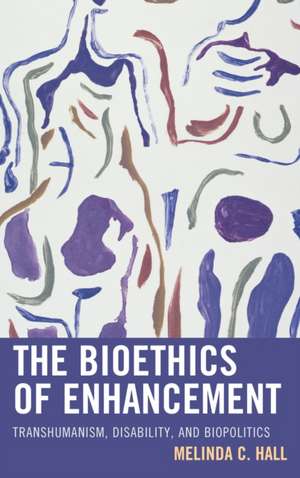Bioethics of Enhancement
Autor Melinda Hallen Limba Engleză Paperback – 14 sep 2018
Preț: 364.49 lei
Nou
Puncte Express: 547
Preț estimativ în valută:
69.77€ • 75.81$ • 58.64£
69.77€ • 75.81$ • 58.64£
Carte tipărită la comandă
Livrare economică 21 aprilie-05 mai
Preluare comenzi: 021 569.72.76
Specificații
ISBN-13: 9781498533508
ISBN-10: 1498533507
Pagini: 206
Dimensiuni: 150 x 222 x 16 mm
Greutate: 0.3 kg
Editura: Rowman & Littlefield
ISBN-10: 1498533507
Pagini: 206
Dimensiuni: 150 x 222 x 16 mm
Greutate: 0.3 kg
Editura: Rowman & Littlefield
Notă biografică
By Melinda Hall
Descriere
This book is a critical intervention into debate over human enhancement and engages bioethics, disability studies, and Michel Foucault. Melinda Hall employs a biopolitical framework to argue that transhumanist thinkers present diminished images of the good life and seriously devalue disabled lives by linking disability with risk and death.
